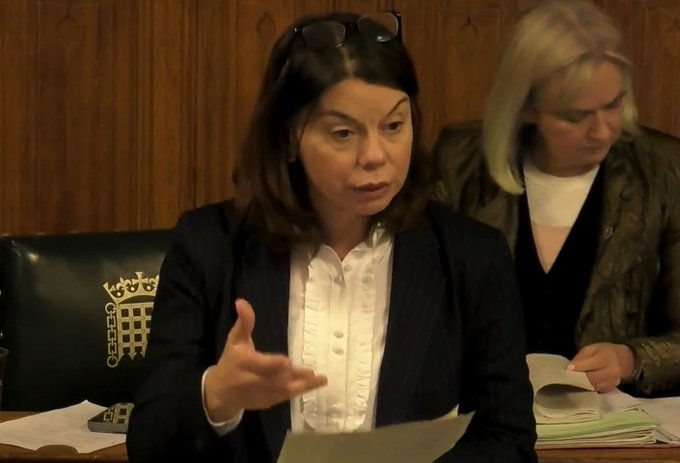Trade Unionists for Fair Votes
- kevinndaws
- Jul 18, 2025
- 4 min read
I recently attended a meeting of Politics for the Many where we were given a presentation about the last General Election and the way forward on electoral reform. The presenter described the last General Election as the most disproportionate UK General Election in history.
Politics for the Many is a pressure group with strong links to the Electoral Reform Society who are working with representatives from all major political parties and members across a wide range of trade unions to persuade trade unions to support Electoral Reform.
As you will appreciate from the above comment, the result of the last General Election is probably the strongest argument for it. Let us remember that Labour secured 412 seats (63% of all seats) based on just 34% of the vote – that’s a win based on only one in three votes cast.
The Electoral Reform Society said it was “the most disproportional in British electoral history.”
‘Cross-party parliamentary support for proportional representation is at an unprecedented high.
You may recall that in May I posted a Blog called Disabled Workers Demand Representation and Voice. In that blog I pointed out that if the UK Parliament was truly representative there would be 136 disabled MPs as opposed to only 9 MPs currently identifying as disabled.
We are not saying that the introduction of proportional representation and fair votes would instantly solve this problem but it is certainly an important part of the solution

In December, Liberal Democrat MP, Sarah Olney presented a ’10 minute rule bill’ calling for voting reform – and MPs voted in favour (138 votes for; 136 against) with 59 Labour MPs backing her bill’.
Politics for Many, have outlined their 2 year strategy which we would summarise as follows:
Calling for an Independent Commission on Electoral Reform
Work to obtain more support for Electoral Reform from trade unions utilising both a bottom up and top down approaches
Highlight the connection of an out of date Electoral system to both ‘dirty money’ and ‘disinformation’
These strategic objectives also appear to be supported by the All-Party Parliamentary Group for Fair Elections.
In the APPG ‘Free But Not Fair’ report, they make three key recommendations for government:
Establish a National Commission on Electoral Reform: the Commission would allow experts, alongside citizens, to recommend a fair and democratic voting system in which every vote counts. It should start work in 2025.
Close the donation loopholes and strengthen the Electoral Commission: these simple changes would prevent individuals or groups from bypassing our electoral finance and transparency rules.
Require transparency in handling of ‘legal but harmful’ content: require new and social media platforms to publish risk assessments for ‘legal but harmful’ content.
We would urge all trade union members to:
Join Politics for the Many through joining their mailing list https://action.politicsforthemany.co.uk/page/45274/subscribe/1
Also sign their Trade Unionists for Fair Votes declaration https://action.politicsforthemany.co.uk/page/121968/petition/1
Persuade your trade union to support Fair Votes. You could start by getting your trade union branch to support a motion.
Here is a suggested motion:
This Branch notes that a Labour majority government was elected with the support of just 34 per cent of the electorate. They secured 412 seats (63% of all seats) based on only one in three votes cast.
The Electoral Reform Society described it as “the most disproportional in British electoral history.”
The outcome of the 2024 election in terms of the share of parliamentary seats, in comparison to the votes received by the participating parties, indicates that the British electoral system is no longer fit for purpose.
We are one of the few countries in the world that uses such an unproportional electoral system. Westminster is not just out of touch with the rest of the world but also with the proportional electoral systems used in the Scottish Parliament, Welsh Assembly, European elections and for the London Assembly.
First-past-the post (FPTP) has passed its sell-by date. We no longer have two party politics in which those two parties secure 90 per cent of the votes on an 80 per cent turnout. Now, they struggle to get two-thirds of the vote on a 60 per cent turnout.
Under FPTP, parties take their core vote for granted and chase swing voters in marginals, narrowing the political debate.
This Branch notes that this stultifies election campaigns and degrades our democracy, alienating voters who feel poorly represented.

This Branch believes in making all votes count in all parts of the country and believes that proportional representation has the potential to open up politics, inspire people to vote, and provide the space for alternatives to austerity to be heard.
This Branch further believes that a more proportional and fairer voting system would provide more opportunities than FPTP for women, people of all ages and ethnicities, disabled and LGBT+ people to be successful candidates.
This Branch calls on the General Secretary and the Executive Council to commission independent research which would consider the options for change. The Executive Council are to report back by the 2027 Policy Conference with recommendations which would form part of a wider campaign for change.
This Branch calls on the General Secretary and the Executive Council to launch a broad-based campaign for a fair electoral system that expresses the range of political opinion in the UK. The campaign should actively engage trade union members.
NB: Please adapt and amend this motion as necessary for your trade union – you may have a National Executive Council rather than an Executive Council; your union may have a different name for your Branch such as a Chapter.





Comments